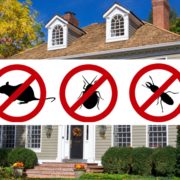
Natural disasters, like what towns and communities in Massachusetts’s have experienced have the potential to wreak havoc on our lives and properties. Flooding stands out as one of the most destructive forces of nature. As climate change continues to impact weather patterns, the risk of flooding has increased significantly in many regions. In this blog post, we will dive into the world of flood insurance – what it is, why it’s important, and how it works. Whether you’re a homeowner, renter, or business owner, understanding flood insurance can be a crucial step in protecting your assets.
What is Flood Insurance?
Flood insurance is a specialized type of insurance coverage designed to provide financial protection in the event of flood-related damage to your property. Unlike typical homeowner’s insurance, which usually excludes coverage for floods, flood insurance specifically addresses damages caused by rising water, heavy rainfall, storm surges, or other water-related incidents. This coverage is typically offered through the National Flood Insurance Program (NFIP) in the United States, as well as through some private insurance companies.
Why is Flood Insurance Important?
Limited Coverage in Standard Policies: Most standard homeowner’s insurance policies do not cover flood damage. As many home owners in North Andover have found out; this means that if your property gets damaged due to flooding, you would be responsible for covering the repair and replacement costs out of your own pocket, which can be financially devastating.
Increasing Risk of Flooding: With the changing climate, the risk of flooding has increased in many areas. Even if you live in a region that hasn’t historically been prone to flooding, the changing weather patterns and increased urbanization can lead to unexpected flood events.
Peace of Mind: Floods can strike without warning, leaving little time to prepare. Having appropriate insurance provides you with peace of mind, knowing that you have a financial safety net in place should the worst happen.
How Does Flood Insurance Work?
Flood insurance policies typically cover two main components: building property coverage and personal property coverage.
Building Property Coverage: This part of the policy helps cover the physical structure of your home or property, including its foundation, walls, electrical systems, plumbing, appliances, and more. It’s important to accurately assess the value of your property to ensure you have adequate coverage.
Personal Property Coverage: This component covers your belongings, such as furniture, electronics, clothing, and other personal items. Keep an inventory of your possessions along with their estimated values to facilitate the claims process.
Considerations:
Coverage Limits: Flood policies have coverage limits, which means there’s a maximum amount the policy will pay out. Be sure to understand these limits and consider purchasing additional coverage if your property’s value exceeds the limit.
Waiting Period: Many flood insurance policies have a waiting period before they become effective. This means you can’t purchase coverage just before a flood is predicted to arrive for immediate protection. Planning ahead is key.
Elevation and Risk Factors: Premiums can vary based on your property’s elevation and its proximity to flood-prone areas. The higher the risk, the higher the premium.
Conclusion:
Insurance for flooding is a vital tool in safeguarding your property and possessions from the devastating effects of flooding. With climate change increasing the frequency and severity of flood events, the importance of having appropriate coverage cannot be overstated. By understanding what this type of insurance covers, why it’s crucial, and how it functions, you can make informed decisions to protect your investments and find peace of mind in an increasingly unpredictable world.


 Randy Tibbetts is an independent real estate broker providing professional residential & commercial real estate services in MA
Randy Tibbetts is an independent real estate broker providing professional residential & commercial real estate services in MA